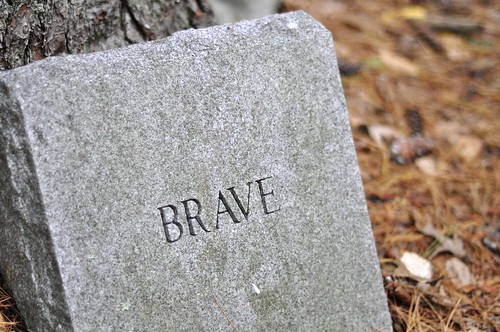What’s next? Is it Google Wave? How should we be using Twitter? Which social networks should we be on? What’s next?
Familiar questions? You hear these questions at conferences, trade shows, events, in the fishbowl, just about everywhere. They reflect a certain hunger, an almost desperate feeling from folks in the social media fishbowl, even from veteran practitioners.
What’s next is a simple question to answer. As with many things, however, what’s simple is often not easy.
What’s next is you. More specifically, what’s next for you is improving you, breaking away from existing limitations. No matter where you are on your social media journey, you’ve accrued some habits. Some are good and useful, some are not. Some habits are outdated already and aren’t serving you particularly well. For example, it might be your habit to reply to tweets at a certain time of day, but if your followers have changed and grown over time, they might want to hear from you at a different time of day, or new followers might have different expectations of how frequently you’ll keep in touch with them.
What’s next isn’t more tools, which is that desperate hunger I mentioned earlier, that wanting of more shiny objects. You see this most acutely in people who are disappointed in new offerings like Google Wave, whose expectations were that it would dramatically change their lives. If you’re chasing after the tools, that’s understandable. After all, understanding and mastering the basics of the tools that you currently have has gotten you to this point.
I’d offer instead that instead of longing for more tools, new tools, shinier objects, that you instead focus on becoming more powerful with the tools you already have. What do I mean? Let’s look at a martial arts example. There are only so many ways that physics, biology, and psychology permit us to punch, kick, or throw someone with any degree of effectiveness. Most of the tools you can achieve a basic, minimum level of competency with in about six months per tool if you practice diligently and frequently.
After you understand and can use the basics, then what? Just more of the same? Sort of. In the martial arts, you start putting combinations of the basics together. You start to examine human nature, to figure out why someone would behave in such a way that necessitates using a punch or a kick on them. You start to dig deeper into people’s motivations and into your own weaknesses, solidifying the tools you’re not so comfortable with, figuring out what it is in your own nature that prevents you from being as effective as possible with that tool.
Ultimately, once you reach higher levels of proficiency in the martial arts, the most juice for your squeeze comes out of self improvement. Got a quick temper? Learning how to channel that and tame that will do more for your quality of life (and keep you out of more fights) than the physical tools alone. Easily intimidated? Learning how to fortify your spirit will bring rewards not just to a physical encounter, but also to job interviews, workplace stress, and family problems, too.
The tools of social media are no different from a big picture perspective. (Obviously, punching someone has much more immediate impact than tweeting them) Once you’ve gained proficiency with the tools themselves, if you want to be more and more effective, if you want to get more and more out of them, you have to look away from the tools and the distractions of the day and focus on what in your own human nature is holding you back from accomplishing even more.
How do you do that? By first and foremost being honest with yourself, privately, internally, and quietly. Take some time, just a minute or two a day to start, to sit up straight and take a few deep breaths, then ask yourself these two questions:
1. What one thing did I do today that I’m proud of?
2. How can I take that thing I did and improve on it?
Some days, it’ll be a little bit of work to accomplish even #1. That’s okay. That’s what’s powerful about social media. You can generate results very quickly, so go find something worth doing before each day is over and use the tools that you have to do it. Then put the results into your brain with question #2 and see if you become more effective, more free, more powerful with the tools you already have.
Do this often enough, and you’ll wake up one day and realize that the answer to what’s next is and always has been inside your own heart and mind.
Did you enjoy this blog post? If so, please subscribe right now!



Enjoyed it? Please share it!
Get this and other great articles from the source at www.ChristopherSPenn.com






